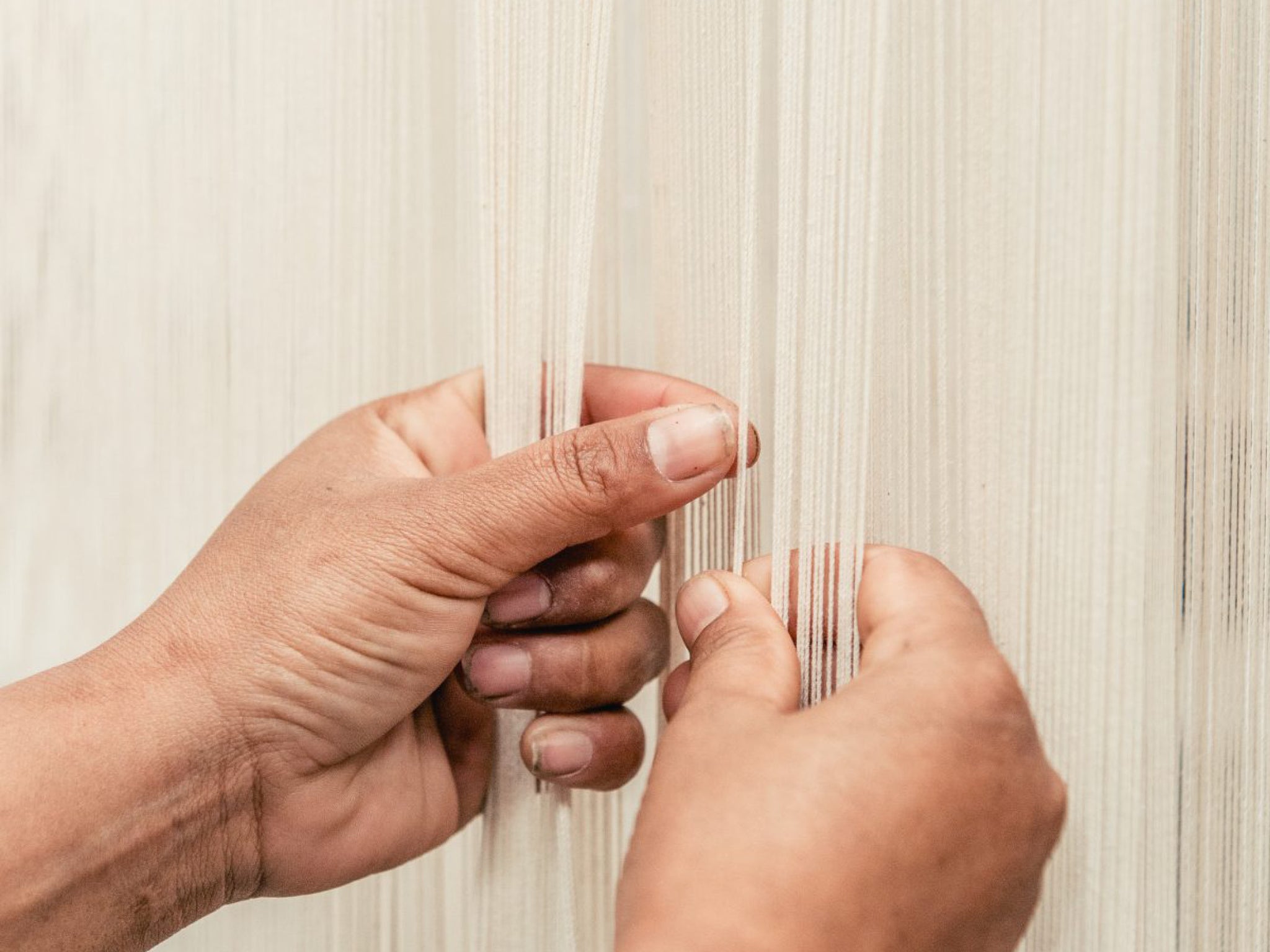Your Cart is Empty

An urgent need to move away from disposable culture to more ethical and environmentally thoughtful interior and architectural practices was the cry from a panel event at the London Design Festival 2019.
Our founder, Sharon Shi - whose mission at chaccra.com is to provide economic and creative opportunities for people in Nepal - joined the ‘People and Planet over Profit’ discussion at RB12 in Shoreditch.
Joining Sharon on the panel were Amanda Mantville from Armadillo & Co, Ella Fathi of Space & Solutions, Chrissa Amuah of AMWA and the artist and author Sara Riaz Khan. The chair was Javier Lauret, Commercial Director at Hurford Salvi Carr.
All of the panellists are champions of ethical design speaking at the event to delve into environmental issues as well as how design can bring about cultural appreciation and empowerment.
Ella Fathi expressed grave concern at the practices within architecture, particularly in the commercial space.
She said: “It [office architecture, design and rebrand] is one of the dirtiest industries out there. With the new workplace culture of shared spaces there is a disposable mind set in how clients want to approach their spaces and in what employees are expecting.”

Ella explained that the focus is on profit and attracting good employees yet offices often have a turnaround in design of less than five years; leading to intense waste.
She said that things are starting to change in the high-end boutique spaces but in the commercial environment it is about profit, the identity of a company, and quick disposable office goods.
“Culture caters for a disposable culture and enforces the need for new and fresh things.
“Culture needs to change,” Ella added.
Sharon highlighted that as well as the environment, we also need to think about the people we work with. She explained how CHACCRA works closely with producers through to customers, explaining: “We are working hard to engage with local communities in Nepal to preserve culture in a sustainable way.”

CHACCRA is striving to make a positive difference in a number of ways including: being very selective in its suppliers - such as working with women to ensure their children go to school - to helping to deliver training programmes to encourage young people in Nepal to learn skills around international design and sustainability and build entrepreneurial spirit. The company tends to use natural fibres and uses heavy-metal free dyes.
“Nepal is a country that is highly sensitive to environment so we feel that sense of urgency.”
There was much synergy between the panellists all working hard to be more conscious of their impact.
Chrissa Amuah, who produces stunning textiles inspired by her heritage from Ghana, Togo, and Benin, said: “I am working to have meaning behind the design to transcend trends. I want you to buy my products and love them. I am not working to produce things that are thrown away in this vast consumer culture.
“We are so detached from where things come from and can’t visually see where things go, such as when we throw things in the bin. Working with artisans it is becoming more important to share our design processes and stories of materials.”
This sentiment is echoed by the launch of our innovative modular designs at the London Design Fair, highlighting that CHACCRA designs are not just about buying a rug, but giving a message.
Sharon explained that CHACCRA’s modular rugs, designed by Mylene Spencer, enable people to buy a smaller piece first and can build from that. She announced that she is looking into creating a platform for people to exchange their rugs within a community so that people can have change with less waste.
Prior to the event Sharon said: “Our handmade rugs are the antithesis of disposable culture. They are beautifully made and long-lasting, aimed to tap into people's desire for great design pieces, with our modular designs bringing extra flexibility for interior design.”
At the end of the discussion and questions from the floor, all probing into the need for positive change, Sharon said: “When the people from Nepal are sitting here on panels like this [instead of us] we will know we have made it to the right level.”
Comments will be approved before showing up.


